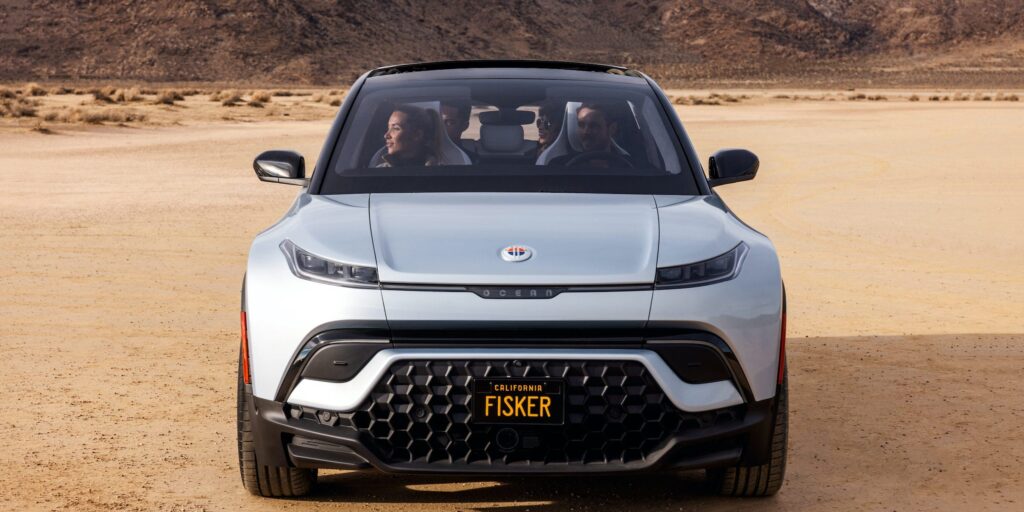- Fisker stock imploded on Monday, declining by 28% to a record low before trading was halted.
- The NYSE said Fisker stock would be delisted as it failed to shake its penny-stock status.
- Fisker's financing talks with a strategic automaker also fell apart.
Fisker stock cratered this week, declining by about 28% to a record low of less than 9 cents per share before trading in the stock was halted.
The New York Stock Exchange said Monday the stock would be delisted, citing "abnormally low" price levels. The NYSE typically delists stocks that fall below $1.00 per share for a period of more than a month.
The sharp decline in Fisker — the stock is down 95% year-to-date — comes as sales for its flagship Ocean electric vehicle have been lackluster.
In 2023, the company produced 10,142 units of the Ocean EV, and delivered just 4,700 of them to customers. Fisker lost $762 million last year on $273 million in sales, and held more than $1 billion in debt.
The more recent decline comes as the company failed to secure strategic financing from a large automaker it was in talks with.
Fisker said in a filing with the SEC that it "continues to evaluate strategic alternatives." Those "alternatives" could ultimately include filing for bankruptcy.
The electric vehicle maker has also suffered from poor reviews of its Ocean vehicle from famous YouTube reviewer Marques Brownlee and more recently, Consumer Reports.
Brownlee called the Fisker Ocean "the worst car I've ever reviewed," while Consumer Reports said the car is "the worst of both worlds."
Slower than expected growth in the US EV market has extended the multi-year decline in the sector, which peaked in late 2021 when Rivian went public at a valuation that was briefly north of $150 billion. Today, Rivian is worth just $10 billion.
The US-based EV companies not only have to compete with China's BYD, which has been flooding the global market with low-cost electric sedans, but also with hybrid vehicles, which have seen a marked jump in sales in the US as consumers continue to deal with EV range anxiety.
